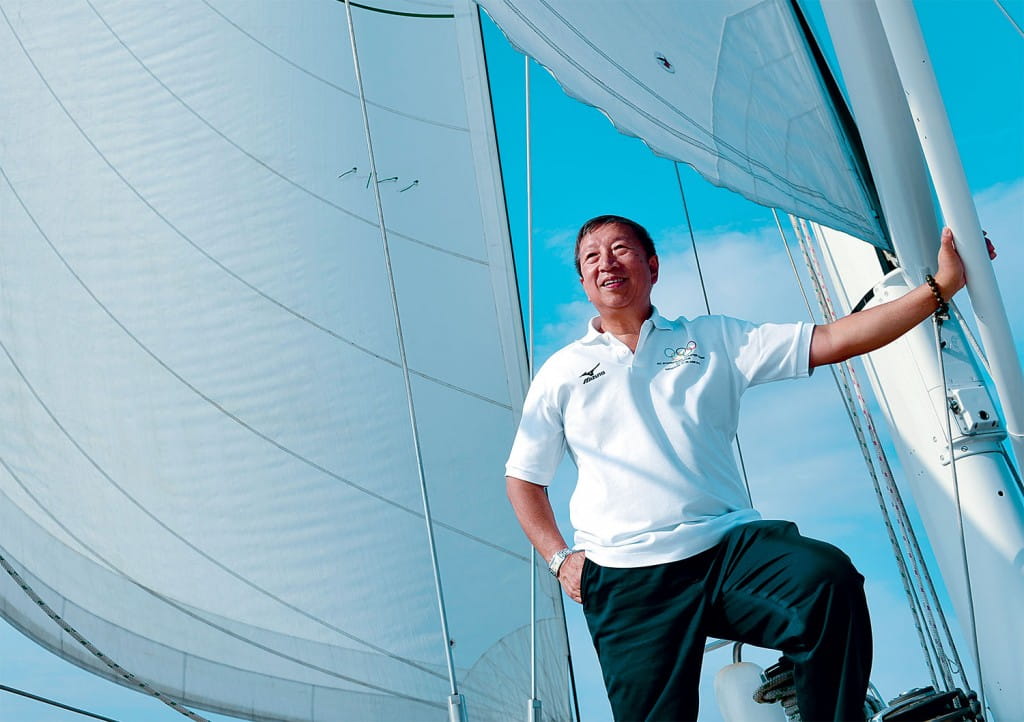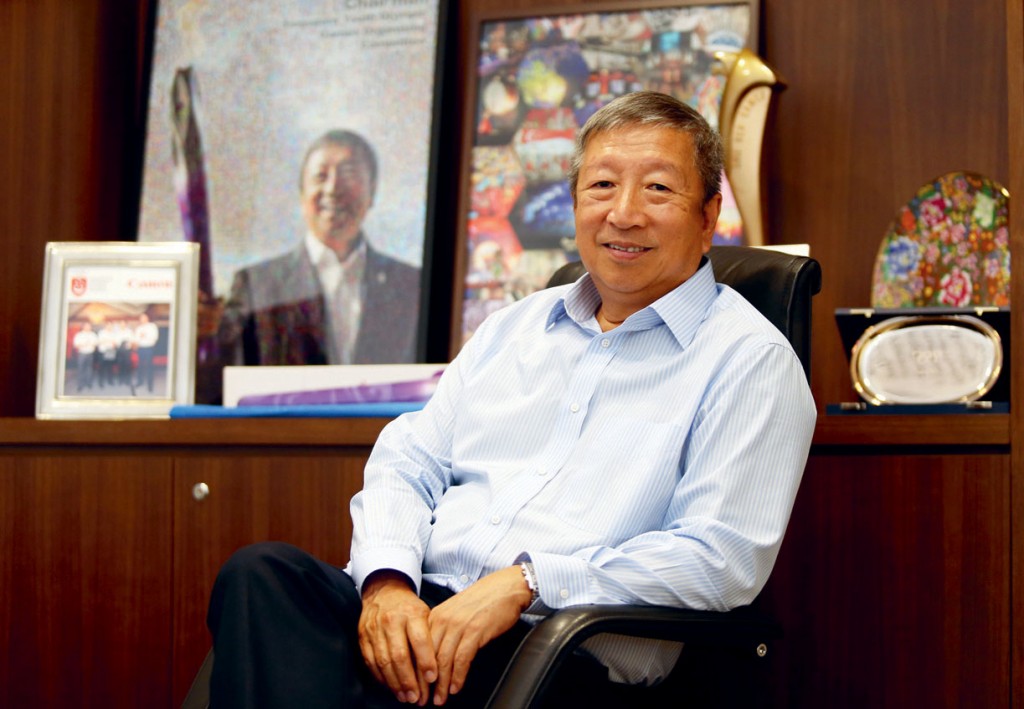
Ng Ser Miang has been a member of the International Olympic Committee (IOC) since 1998. Currently, he is chairman of the IOCʼs fi nance commission, a member of the Singapore National Olympic Council executive committee and chairman of the Singapore Olympic Foundation. He has served as a non-resident Ambassador to Norway since 2001 and to Hungary from 2000 to 2012. He has been appointed a Justice of the Peace in Singapore since 2005.
NG SER MIANG wears many hats in sport administration, including chairman of the International Olympic Committee’s finance commission, which puts him in the perfect position to discuss the role that sport can play in connecting communities.
PHOTOS SPH LIBRARY
I
have always believed in the power of sport to achieve consensus in the international arena. It is definitely better than using guns. It brings people together, and has them compete according to a predetermined set of rules, to become the best that they can be. In September 2015, the United Nations (UN) recognised sport as an important enabler of the UN post- 2015 Sustainable Development Goals.
The UN document stated: “(The UN recognises) the growing contribution of sport to the realisation of development and peace in its promotion of tolerance and respect and the contributions it makes to the empowerment of women and of young people, individuals and communities as well as to health, education and social inclusion objectives.” This is a testament to the enduring power of sport and its ability to bridge differences, unite the divided and build greater understanding.
CONNECTING COMMUNITIES
In my 26-year career in sport administration, I have witnessed my fair share of examples. One was at the Sydney Olympics in 2000 when North Korea and South Korea set aside their differences to march together under one flag, which depicted a map of both countries.
Closer to home, Singapore sent coaches to Myanmar to train the country’s optimist sailing teams in the early 1990s when it wanted to develop and grow the sport. We also had the Thais do the same for us in the 1980s, when we decided to further strengthen the skill of our sailors.
Ukrainian former pole vaulter and multiple world and Olympic champion Sergey Bubka has also related instances to me of lending his poles to his opponents during competitions. Even though they compete with one another, the athletes want to win fairly too.
Whether you win or lose, sport cultivates real friendships. On a national and global level, sport helps to develop young people, bond communities and foster national pride, especially when the athletes do well.
Although it might seem counter-intuitive that a competitive activity can be good for building understanding and relationships among communities, athletes do try their best and push beyond their limit. Sport demands fair play and presents equal opportunities to all participants. At the end of it, you learn to accept loss gracefully and to be magnanimous in victory.
These are revelations I have arrived at from my time as a former national sailor and from being involved in different associations – with the International Olympic Committee (IOC), the Singapore Sports Council (SSC), the International Sailing Federation and the Singapore Yachting Association (now known as the Singapore Sailing Federation), just to name a few.
SPORT DEVELOPMENT
I have always been interested in sport since my schooldays, thanks to classmates and friends with whom I enjoyed games, such as basketball and rugby, together. However, it is sailing that I have a keen interest in.
I was first introduced to it when I was 17, while on a student exchange in the United States. In my youth, I competed in more than 100 races and I was on the first Singaporean team to win a sailing medal – a silver – at the Southeast Asian Peninsular Games in 1969. But I also sail for leisure.

Ng Ser Miang is an avid sailor who represented Singapore internationally in various competitions in his youth.
“Whether you win or lose, sport cultivates real friendships... sport helps to develop young people, bond communities and foster national pride...”
I own a yacht called Magic Dragon that I take out to sea whenever I can. Sailing is interesting and challenging, but calming and peaceful at the same time. It builds character and teaches independence and responsibility.
Outside of sailing, I also devote my time to sport development. For instance, while I was with the SSC from 1991 to 2002, we completed the master plan for sports infrastructure in Singapore, and brought sports facilities to all the new towns. We launched the Spex 2000 initiative to develop elite athletes and the Sports-for-Life Programme to get Singaporeans to exercise regularly.
We also brought major sports events to Singapore – an important move to build our image globally. These include the 117th IOC Session in 2005 (where London was elected to host the 2012 Olympics) and the inaugural Youth Olympic Games (YOG) in 2010.
The 117th IOC Session brought luminaries such as then-US senator Hillary Clinton and former British prime minister Tony Blair to Singapore. The 2010 YOG was attended by over 3,600 top youth athletes from close to 200 countries and has inspired a generation of youth to participate in sports and to embrace the Olympic movement.
Through them, we were able to showcase Singapore’s strengths to the world: our efficiency, our multi-cultural society and interesting tourist attractions, and how the government, private sector and community can work together to create a successful event. I truly enjoy the sport development work I have been doing all these years. It is exciting to see how things come together.
More importantly, I am thankful when I see the benefits generated through sport and its positive influence on young people.
